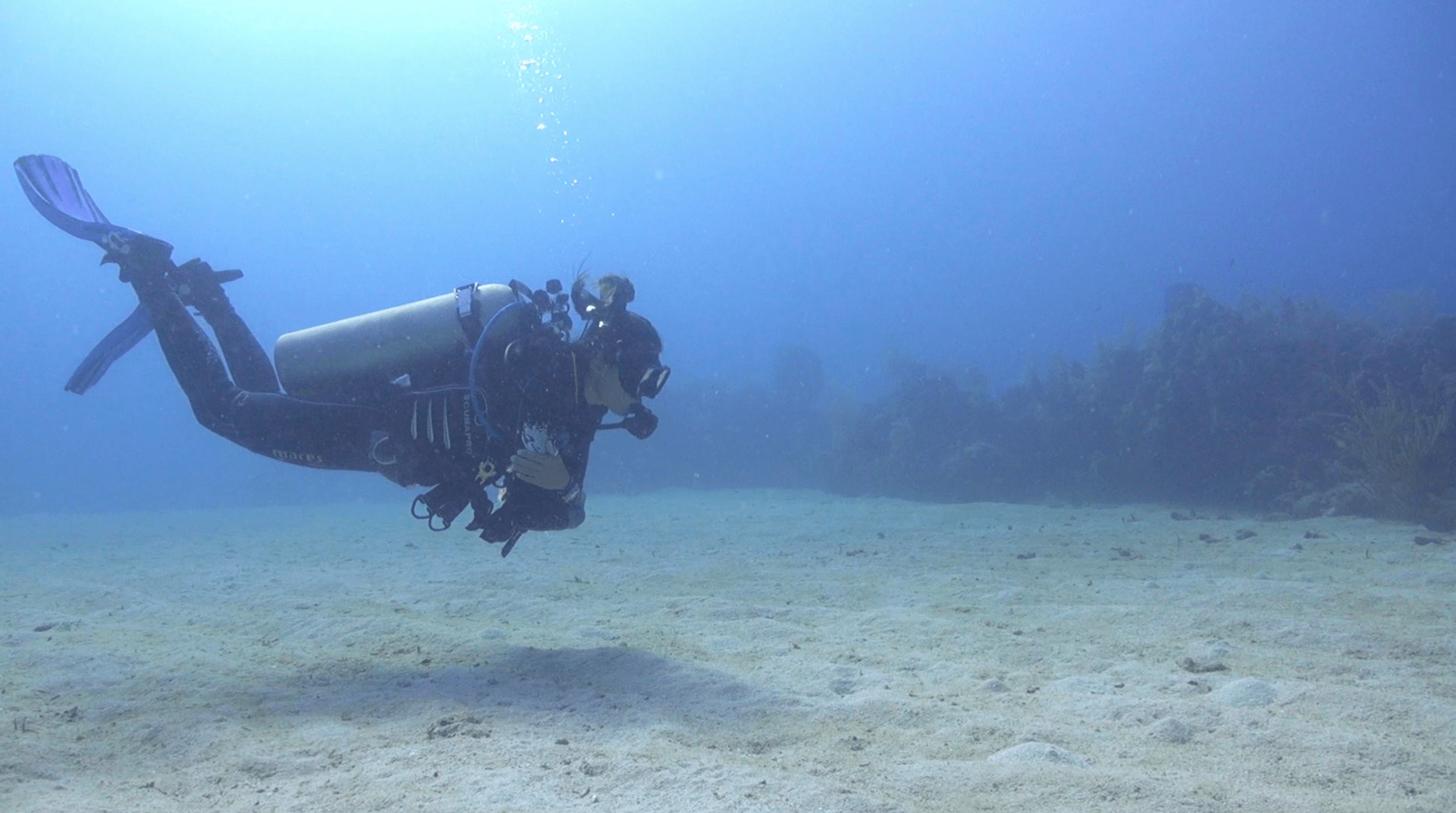5 Smart Ways to Improve your Air Consumption
You're 40 minutes into the most amazing dive in the world, surrounded by beautiful schools of fish and vibrant soft coral moving gently in the currently, when an enormous eagle ray comes gently floating by. You want to stay in this moment forever when...curse! You're at 700 psi. It's time to start your safety stop and end the dive.
Want to avoid these types of scenarios? Good air consumption can open up your world when it comes to scuba diving, so let's discuss 5 smart ways to improve your air consumption.
Instructor Eri demonstrating great buoyancy control.
Tip 1. Take a buoyancy course
Good buoyancy is the key to good air consumption. There are three main benefits of being weighted well and demonstrating good buoyancy: you don't waste a lot of air inflating and deflating your BCD, your breathing is more regulated and you use less energy.
Whenever we have Advanced Open Water Diver students, the first dive of the course that we always strongly recommend they complete is the Peak Performance Buoyancy dive. You learn how to weight yourself properly, how to swim in a good, efficient manner and how to use your lungs, not your BCD, to control your buoyancy. It's a really beneficial dive that improves people's diving for their entire diving careers, so it's a dive that should definitely not be missed.
Want to take it even further? Take an entire buoyancy specialty course, where you spend several dives focusing just on buoyancy. This will greatly improve your diving and your air consumption in the long run.
Tip 2. Be a yogi (or at least breathe like one)
A lot of people find that doing yoga benefits them as scuba divers. Even if you don't do yoga, it doesn't hurt to breathe like someone that does. Yoga breathing is very similar to how you should breathe in scuba diving. Nice, long deep breaths in and nice, long deep breaths out.
Breathing deeply not only improves your air consumption, but it improves your buoyancy control as well. Your lungs act as a secondary buoyancy control device, so breathing shallowly and holding air in your lugs will make you more positively buoyant. If you are positively buoyant on a dive, especially during your safety stop, it can stress you out and make you breathe even more shallow, further increasing your buoyancy. Breathing your air out deeply will help neutralize your buoyancy, so you get the double benefit of better air consumption, buoyancy control and less stress when you breathe deeply.
Tip 3. To take it further, try the 1:2 rule
When I first started diving, I wanted to see just how good I could get my air consumption, so I started a 1:2 rule to see if it made a difference. Breathe in for a certain number of seconds (4 seconds was comfortable for me) and breathe out for twice that period of time (8 seconds out). While it wasn't a type of breathing I would naturally do, focusing so much on my breathing and taking the time to not only breathe in slowly, but to also breathe out slowly, made a difference for my air consumption. Now, I can actually get two 60 minutes dives off of one tank if I am so inclined (I'm not normally so inclined, but it's had its benefits before).
Tip 4. Be efficient
Efficiency is the name of the game in scuba diving. Efficient kicking is important to decrease your energy consumption and breathing. When you're diving, you basically want to be hovering always with a gently kick or two every once in a while. Try not to use your arms as that will increase your energy consumption, and though you may not notice it, your breathing will increase as well. Watching your guide or instructor as they dive and see if they're being efficient. If they are, try to mimic them and see how it suits you! If they're flip-floppiting everywhere, then use them as your example of what not to do.
Tip 5. Be gentle with yourself
Being a good diver does not always come naturally to everyone. Some people are great divers on their first Discover Scuba Diving program. Some people require dozens of dives and lots of additional training before they become good, comfortable divers. Everyone is different. If your air consumption is faster than the others, that's okay. With time and some practice, your air consumption will improve, so give yourself a break and just enjoy yourself. The more stressed you are, the more you will breathe, so just relax and enjoy your dive!
So there you have it, 5 smart ways to improve your air consumption! Remember, the most important part of your scuba diving experience is to be mindful, smart, and most of all, have fun. Everything else will come in time, so enjoy the beautiful underwater world and you'll get a 60 minute dive before you know it!


